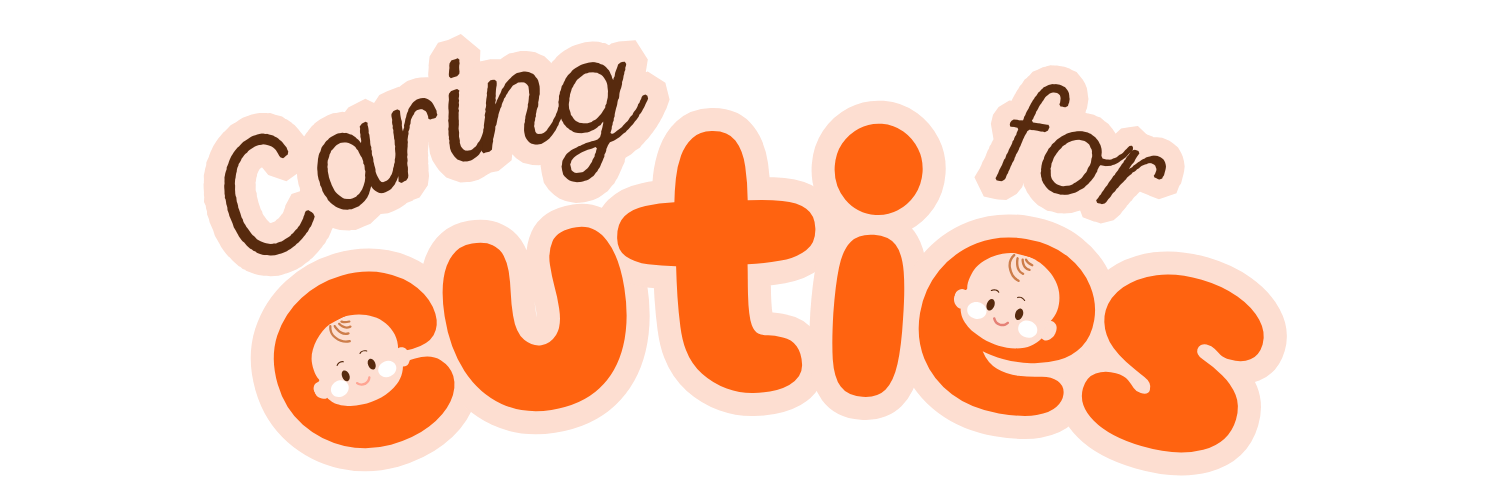As a parent, making sure your school-age child is healthy is key. But, how do you handle physical growth, nutrition, daily habits, and digital health? This guide offers the best ways to help your child stay healthy and balanced. Are you ready to help your child succeed in school and life? Let’s start.

Key Takeaways
- Understand the critical stages of physical and motor skills development in school-age children
- Discover age-appropriate physical activities and exercise to support growth and well-being
- Learn how to create healthy daily routines and balance academic and physical demands
- Explore effective strategies for managing screen time and promoting digital wellness
- Gain insights into supporting your child’s social and emotional development
Understanding Physical Development Milestones in School-Age Children
Parents often wonder about the physical milestones their school-age children should hit. Knowing these milestones is key to supporting their growth and health.
Motor Skills Development and Physical Growth Patterns
Children in school age make big strides in motor skills. They get better at coordination, balance, and agility. This lets them do many physical activities. They also grow steadily, with height and weight increasing.
Age-Appropriate Physical Activities and Exercise
It’s important to get kids into the right physical activities. School-age kids should try team sports, individual sports, and outdoor play. These help their heart health, muscle strength, and flexibility.
Signs of Healthy Physical Development
- Steady height and weight gain within normal ranges
- Improved coordination and balance in activities
- Increased endurance and stamina during physical play
- Ability to follow instructions and participate in structured physical activities
- Enjoys physical play and exercise
Knowing the physical milestones and signs of healthy growth helps parents support their child’s health. This ensures they stay active and healthy for life.
| Age Range | Motor Skills Development | Physical Growth Patterns |
|---|---|---|
| 6-8 years | Improved throwing, catching, and kicking skills; better balance and coordination | Average height and weight gain of 2-3 inches and 4-7 pounds per year |
| 9-11 years | Refinement of fundamental movement skills; increased ability to perform complex physical tasks | Average height and weight gain of 2-4 inches and 7-11 pounds per year |
“Encouraging and supporting a child’s physical development is key for their well-being and long-term health.”
Nutrition Guidelines for Academic Success
Good nutrition is key for school-age kids to do well in school and grow their brains. Parents can help by making sure their kids eat a balanced diet. This includes foods that are good for the brain.
Building a Balanced Plate
Teach your child to eat a variety of healthy foods. This includes:
- Lean proteins, such as chicken, fish, or legumes, to support muscle growth and repair
- Whole grains, like brown rice or whole wheat bread, for sustained energy
- Fruits and vegetables, which are rich in essential vitamins, minerals, and antioxidants
- Healthy fats, found in avocados, nuts, and olive oil, to support brain function
Brain-Boosting Superfoods
Some foods are better for the brain than others. Add these to your child’s meals:
- Blueberries – Packed with antioxidants and flavonoids to protect brain cells
- Fatty fish – Rich in omega-3 fatty acids, which are essential for brain development
- Eggs – A excellent source of choline, a nutrient critical for memory and learning
- Nuts and seeds – Contain healthy fats, protein, and essential vitamins and minerals
By focusing on a balanced diet and including brain-boosting foods, parents can support their child’s nutritional needs. This sets them up for success in school.
| Nutrient | Benefits for Academic Performance |
|---|---|
| Protein | Supports muscle growth, tissue repair, and energy production |
| Carbohydrates | Provide sustained energy for the brain and body |
| Omega-3 fatty acids | Enhance brain function, including memory and concentration |
| Iron | Supports oxygen delivery to the brain, improving cognitive abilities |
| Zinc | Plays a critical role in brain development and immune function |
“Proper nutrition is the foundation for academic success. By providing our children with a balanced, nutrient-rich diet, we can unlock their full academic and personal growth.”
School-Age Health and Wellness: Building Strong Foundations
Healthy daily routines and a balanced lifestyle are key for school-age health. By focusing on both schoolwork and physical activities, parents help their kids grow strong. This sets a good base for their overall well-being.
Creating Healthy Daily Routines
Daily routines are vital for a child’s health. They help with physical, mental, and emotional well-being. Bedtime, meals, homework, play, and rest times create stability and healthy habits.
Balancing Academic and Physical Activities
It’s important for kids to do well in school and stay active. Mixing mental and physical activities boosts brain function and mood. It also supports their health.
Supporting Mental Well-being
It’s critical to address mental health in kids. Open talks, stress management, and healthy coping help them deal with school and social life. This way, they can handle challenges better.
“Maintaining a healthy work-life balance and prioritizing mental health are key to ensuring school-age children thrive in all aspects of their lives.”
Strong foundations come from daily routines, balanced activities, and mental health support. Parents empower their kids to succeed in school and life. This builds resilience and skills.

Sleep Requirements and Good Sleep Hygiene
Getting enough sleep is key for kids’ health. Kids aged 6-13 need 9-12 hours of good sleep each night. Having a regular bedtime routine helps them do well in school and stay healthy.
Sleep disorders like insomnia and sleep apnea can hurt a child’s sleep quality. Parents should watch for these signs and get help if needed.
To help kids sleep well, experts suggest:
- Stick to the same bedtime and wake-up time every day, even on weekends.
- Make their bedroom a calm, quiet place without screens.
- Don’t let them have caffeine or do exciting things before bed.
- Keep the bedroom cool, dark, and quiet.
By focusing on healthy sleep patterns and bedtime routines, parents can improve their kids’ sleep quality and health.
| Age | Recommended Sleep Duration |
|---|---|
| 6-13 years | 9-12 hours |
| 14-17 years | 8-10 hours |
“Healthy sleep is essential for children’s physical, mental, and emotional development. Establishing good sleep habits early on can have a lasting impact on their well-being.”
By following these tips and dealing with sleep disorders, parents can make sure their kids get the sleep they need to succeed.
Managing Screen Time and Digital Wellness
Our school-age kids are diving into the digital world. It’s important to find a balance between tech use and other parts of their lives. This section will look at ways to manage screen time, stay safe online, and promote digital wellness.
Setting Age-Appropriate Screen Time Limits
Setting limits on screen time is key for digital wellness in kids. Here are some guidelines:
- Ages 6-10: No more than 1 hour of daily recreational screen time
- Ages 11-13: No more than 2 hours of daily recreational screen time
- Ages 14-18: Encourage a technology balance, with no more than 2-3 hours of daily recreational screen time
Digital Safety and Mental Health
Screen time limits are just the start. We also need to think about how tech affects kids’ mental health and safety online. Teach them to be safe online, like keeping personal info private and watching out for cyberbullying. Talk to them about the good and bad sides of technology.

Balancing Technology Use with Other Activities
Digital tech is a big part of our lives, but kids need a balance. Encourage them to play sports, hang out with friends, be creative, and explore nature. This helps them grow well-rounded and strong in the digital world.
Social and Emotional Development Support
As kids grow, it’s vital to focus on their social and emotional growth. This part talks about how parents can help in emotional intelligence, social skills, friendship building, and self-esteem.
Teaching emotional intelligence helps kids deal with social situations. Parents can help kids understand and share their feelings. They can also learn to manage their emotions and solve problems.
It’s also key to build social skills in kids. Parents can help by encouraging group activities and teaching how to listen and communicate well. Learning to work together and solve conflicts helps kids make good friends.
Boosting self-esteem is also important. Parents can praise their kids genuinely and celebrate their wins. A supportive home helps kids feel good about themselves and their talents.
By focusing on these areas, parents can help their kids grow and succeed in school and life.
| Skill | Description | Strategies for Support |
|---|---|---|
| Emotional Intelligence | The ability to identify, understand, and manage emotions | Teach emotion recognition and labeling Practice self-regulation techniques Encourage empathy and perspective-taking |
| Social Skills | The skills needed to interact effectively with others | Promote active listening and communication Encourage participation in group activities Teach conflict resolution strategies |
| Friendship Building | The ability to form and maintain positive peer relationships | Foster cooperation and compromise Teach conflict resolution skills Encourage playdates and social gatherings |
| Self-Esteem | A person’s overall sense of self-worth and self-acceptance | Offer genuine praise and recognition Celebrate achievements and strengths Provide a supportive and nurturing environment |
“The greatest gift we can give our children is to help them develop their emotional intelligence.” – Daniel Goleman
Preventive Healthcare and Regular Check-ups
Keeping school-age children healthy is a big deal for parents. Healthcare and regular check-ups are key to their growth. This section will cover the important pediatric health steps to keep your child healthy.
Vaccination Schedules and Health Screenings
Keeping up with your child’s vaccination schedule is vital. Vaccines protect against many diseases, keeping your child safe. Regular health screenings also help find problems early, so they can get the right care.
Dental and Vision Care
Good oral and visual health are key for kids. Regular dental check-ups prevent cavities and gum disease. Vision screenings catch vision problems early, helping with school and daily life. These preventive care services are important for your child’s future.
Common Health Concerns and When to Seek Help
Even with good preventive care, kids can face health issues. Knowing the signs of allergies, infections, and mental health problems helps you know when to get medical help. Being quick to act ensures your child gets the care they need.
| Preventive Care Service | Recommended Frequency |
|---|---|
| Physical Exam | Annually |
| Immunizations | As per CDC schedule |
| Vision Screening | Annually |
| Dental Exam and Cleaning | Twice a year |
| Mental Health Check-in | As needed |
By focusing on preventive care and regular check-ups, your child will stay healthy and do well in school and life.
Creating a Healthy Home Environment
Making a safe and caring home is key for kids’ health. Parents can do this by focusing on safety, healthy habits, family wellness, and environmental health. This helps kids grow and develop well.
Prioritizing Home Safety
To keep a home safe, take these steps:
- Childproofing to avoid accidents
- Storing chemicals and meds safely
- Checking smoke and carbon monoxide detectors
- Having clear emergency plans
Fostering Healthy Habits
Healthy habits at home are important. This means:
- Eating well with fruits, veggies, and whole grains
- Being active every day
- Getting enough sleep and practicing good sleep habits
- Limiting screen time and finding other fun activities
Cultivating Family Wellness
A caring home environment is vital. It’s about:
- Talking openly and having positive family vibes
- Doing things together as a family
- Supporting kids to share their feelings and get help when needed
- Teaching everyone to take care of themselves and manage stress
Addressing Environmental Health Concerns
It’s important to think about the environment at home. This includes:
- Keeping the air clean with good ventilation and filters
- Staying away from harmful substances like lead and mold
- Using eco-friendly ways to save energy and manage waste
- Keeping the home clean to avoid allergens and pollutants
By focusing on these areas, parents can make a home that supports kids’ health and happiness.
Conclusion
As we wrap up this guide, it’s clear that helping school-age kids stay healthy is complex. It involves understanding their physical growth, eating right, and creating good daily habits. These steps help kids do well in school and feel good overall.
To achieve this, parents need to find a balance. They should make sure kids get enough exercise, sleep well, and limit screen time. Creating a healthy home and keeping up with doctor visits helps kids grow strong and smart.
Parenting is more than just hitting milestones. It’s about caring for the whole child. By following the advice in this guide, parents can give their kids the best start. They’ll help them live happy, healthy lives.
FAQ
What are the key physical development milestones for school-age children?
School-age kids (5-12 years old) see big improvements in their motor skills. They get better at coordinating, balancing, and getting stronger. They also grow taller and heavier steadily. Knowing these milestones helps parents support their child’s growth.
How can I ensure my child is getting the proper nutrition for academic success?
It’s key to feed school-age kids a balanced diet that boosts their brains. Include whole grains, lean proteins, fruits, veggies, and healthy fats in their meals. Steer clear of processed foods and sugary drinks to keep their minds sharp and energy up.
What are the recommended daily routines for school-age children’s health and wellness?
Keeping a daily routine is great for school-age kids’ health. Stick to a regular sleep schedule and balance schoolwork with physical activities. Also, add stress-reducing activities to their day. Healthy habits like regular bedtimes, exercise, and mindfulness help a lot.
How can I manage my child’s screen time and promote digital wellness?
It’s important to set limits on screen time and ensure digital safety for kids. Make sure they have time for offline activities, socializing, and exercise. This balance is key for their digital and non-digital health.
What are the key preventive healthcare measures I should take for my school-age child?
Regular check-ups, vaccinations, and health screenings are vital for kids’ health. Keep up with immunizations and address vision or dental issues early. This helps keep them healthy and well.
How can I create a healthy home environment for my school-age child?
A healthy home is safe, promotes good habits, and has good air quality. Make sure your home is safe, encourage physical activity, and keep air clean. Also, avoid toxins and hazardous materials.





